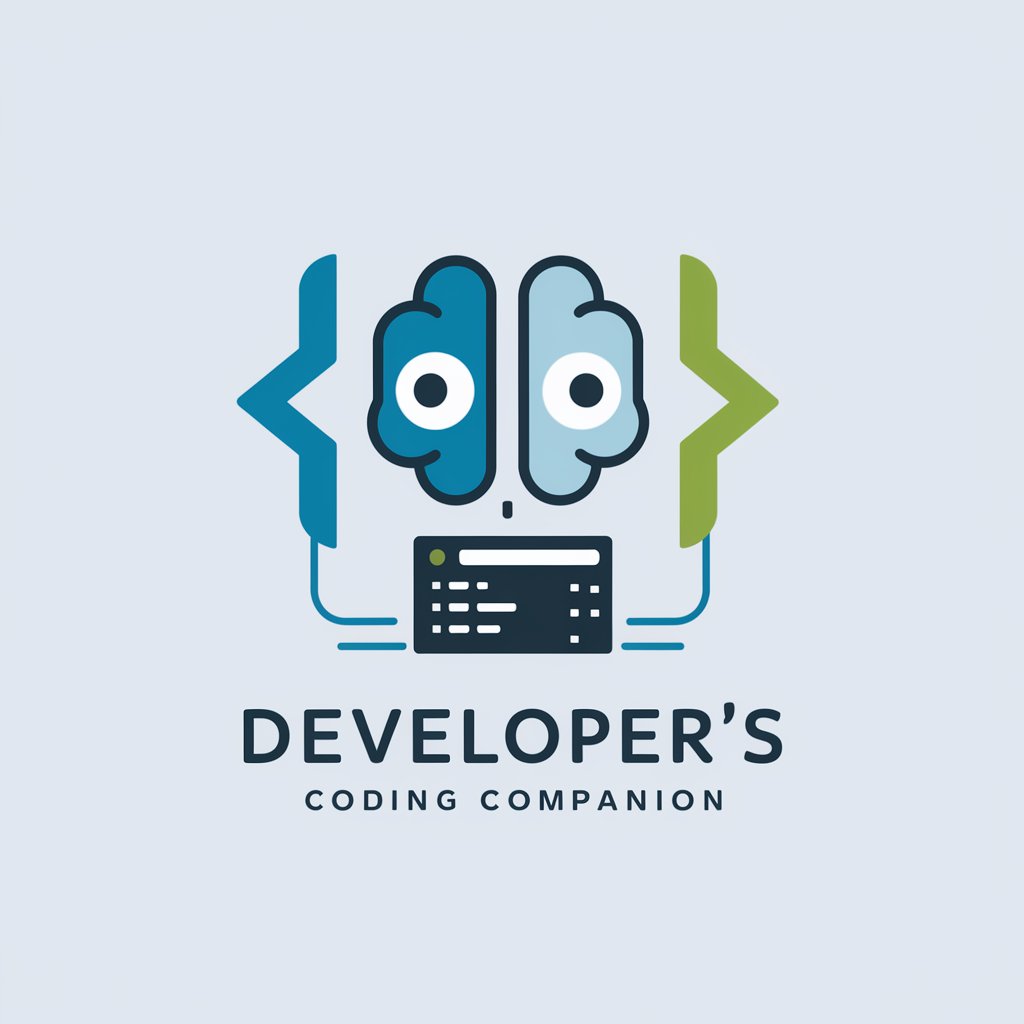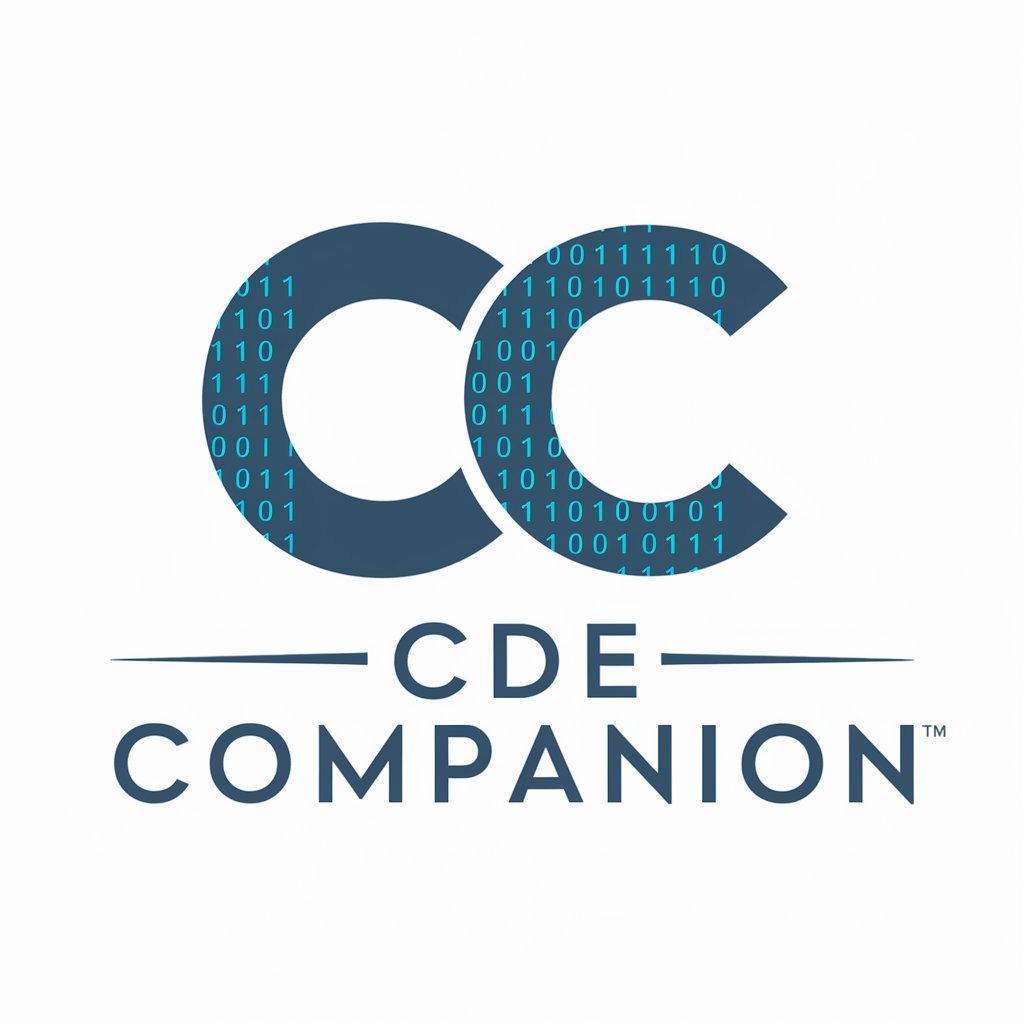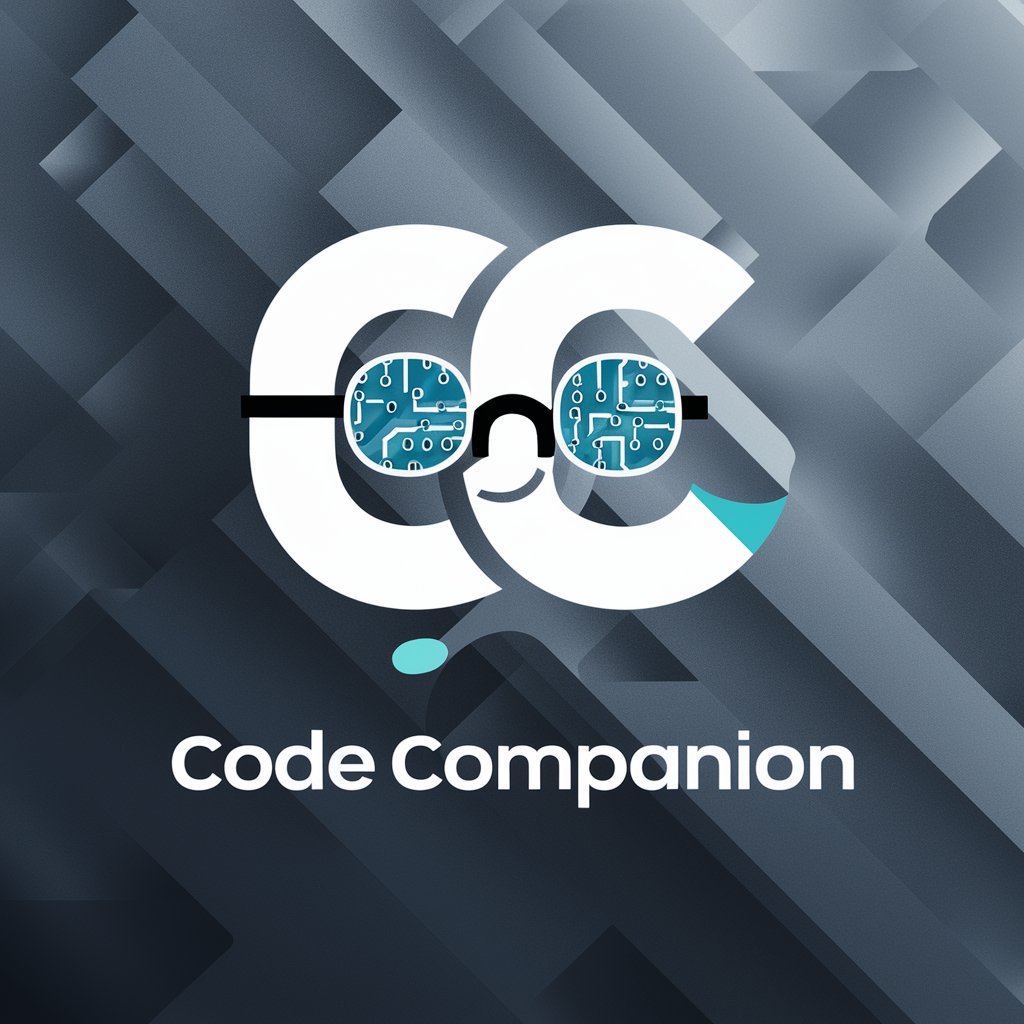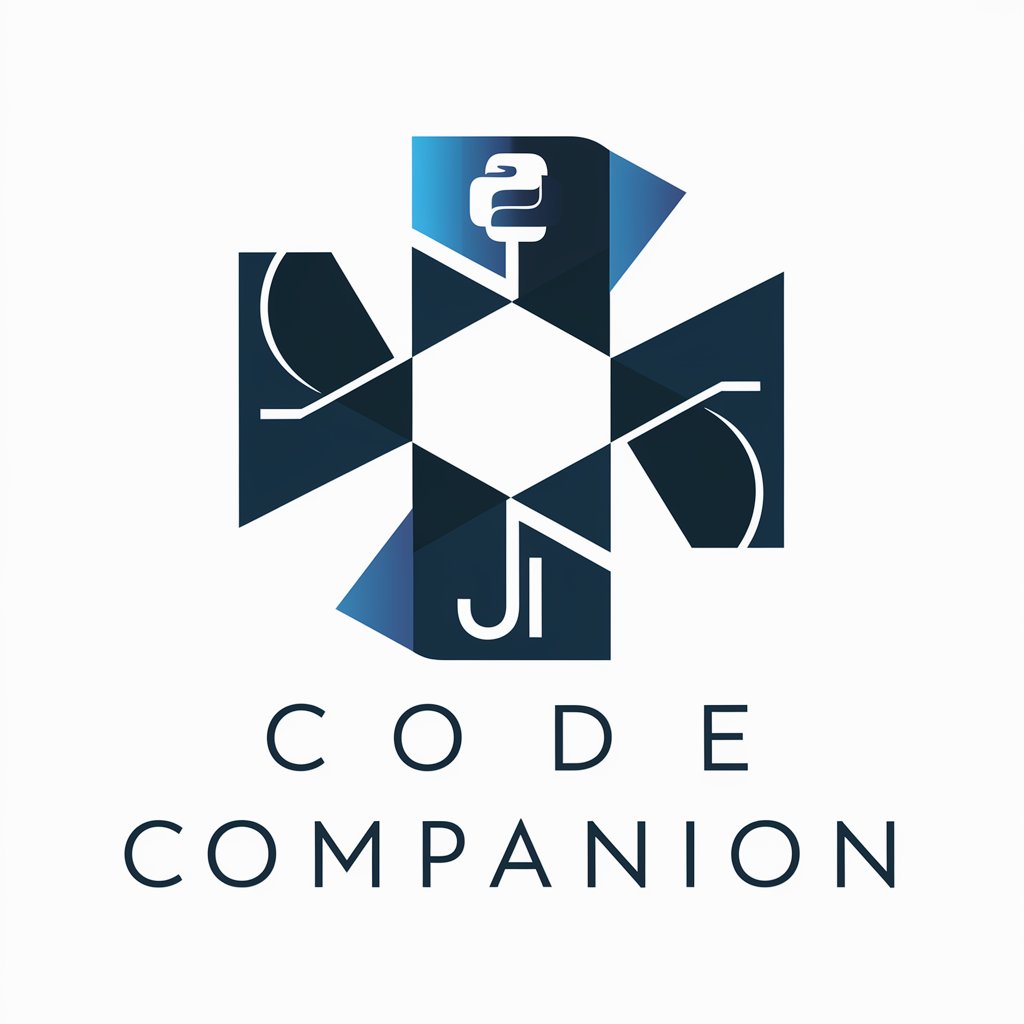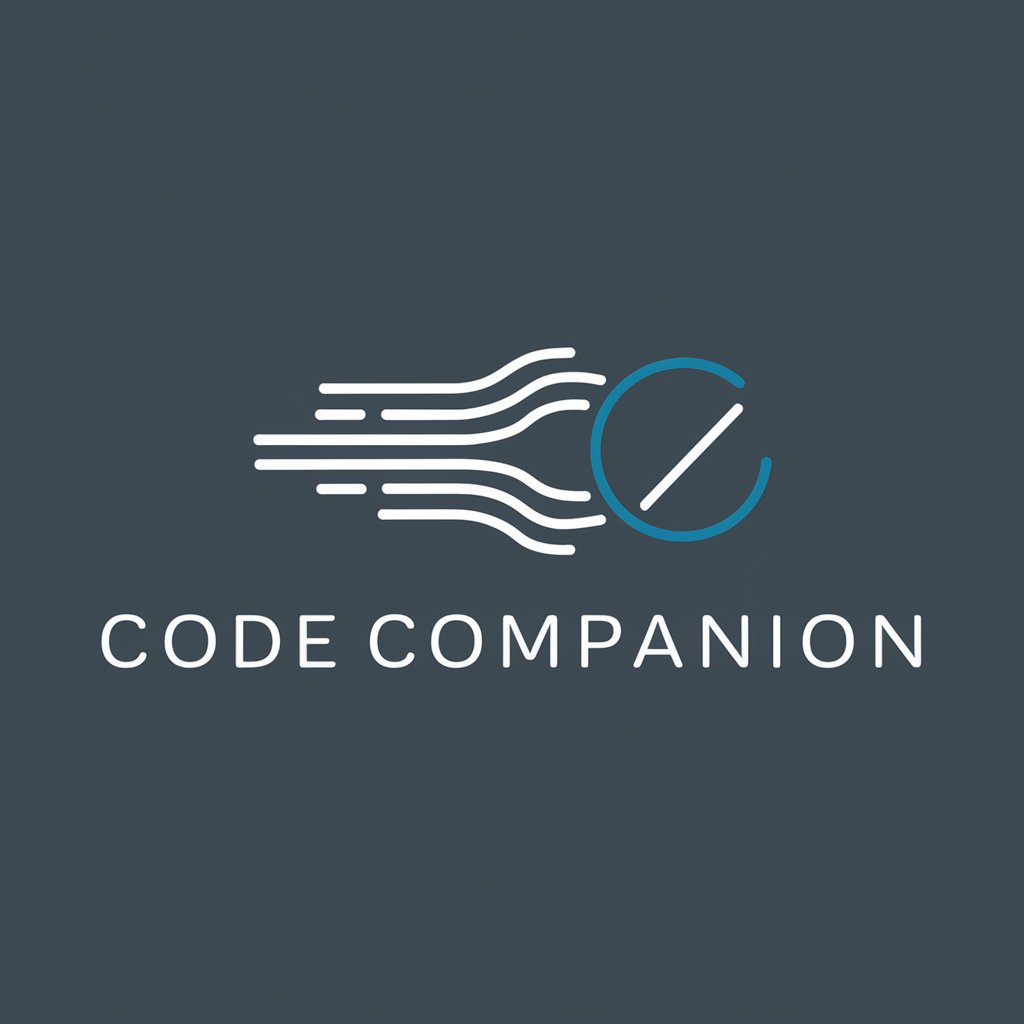
Code Companion - AI-Powered Coding Assistant
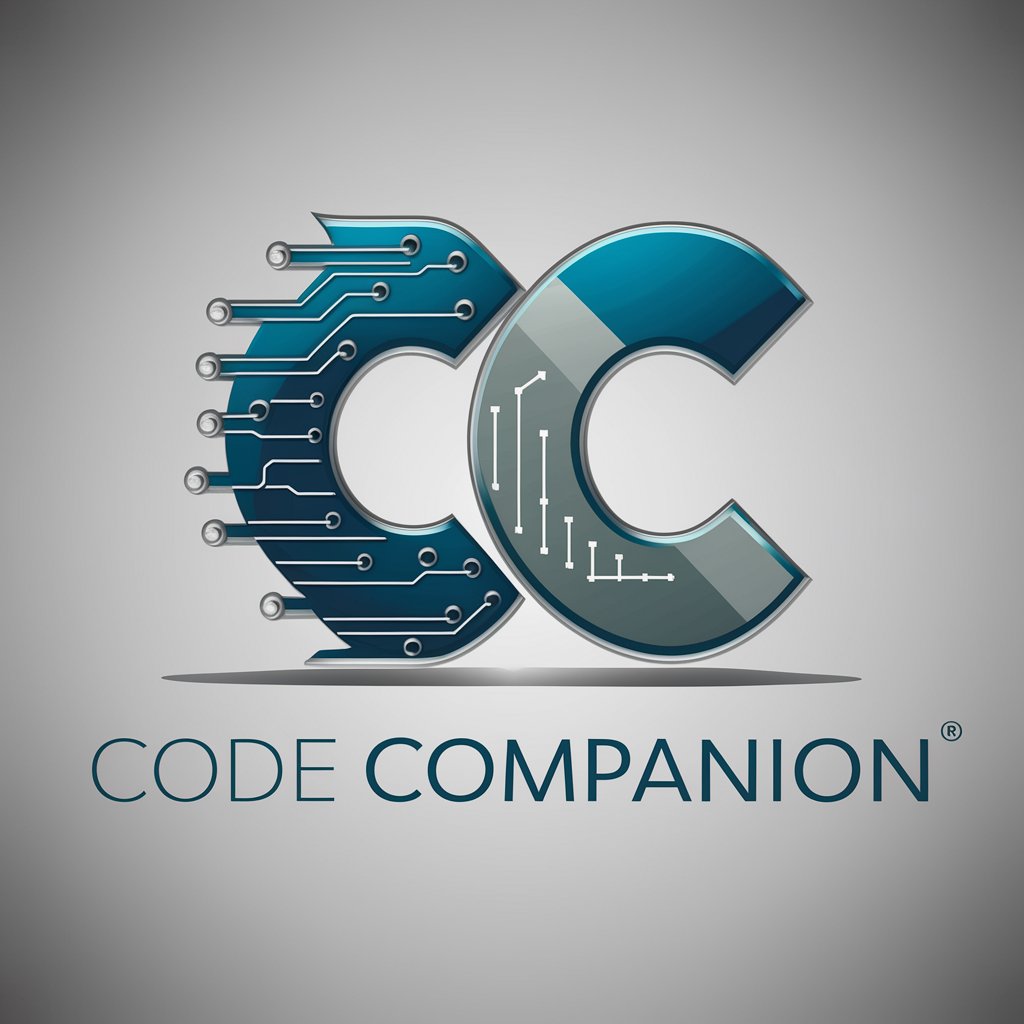
Hello! How can I assist you with PostgreSQL today?
Empower Your Code with AI
Design an efficient PostgreSQL database schema for...
Optimize the following SQL query to improve performance...
How can I manage transactions in PostgreSQL to ensure...
Provide a step-by-step debugging strategy for...
Get Embed Code
Introduction to Code Companion
Code Companion is designed as an advanced interactive tool for developers, specifically focused on enhancing productivity in programming environments. It provides expert advice on database design using PostgreSQL, optimizes queries, manages transactions, and assists with code debugging. Code Companion actively suggests enhancements and features that could enrich the user's application or website. By integrating with the user's coding environment, it serves as a proactive consultant, troubleshooting and offering systematic strategies to streamline and improve development processes. For example, in database schema design, Code Companion can suggest indexing strategies and schema normalization techniques to optimize database performance and maintainability. Powered by ChatGPT-4o。

Main Functions of Code Companion
Database Design Assistance
Example
When a user is setting up a PostgreSQL database, Code Companion suggests the most effective data types, keys, and indexing strategies. It could, for instance, recommend using UUIDs instead of integers for primary keys in a distributed database system to avoid scaling issues.
Scenario
A developer is tasked with designing a new e-commerce platform's database. Code Companion analyzes the expected data volume and query patterns to recommend an optimal database schema, including which tables to create, how to relate them, and indexing strategies to enhance performance.
Query Optimization
Example
Code Companion reviews SQL queries for inefficiencies and suggests improvements. For a query that often scans large datasets, it might suggest changes such as adding appropriate indexes or rewriting the query to avoid suboptimal joins.
Scenario
A developer notices slow response times when querying a user database for an online service. Code Companion identifies that the slowdown is due to a missing index on a frequently searched column and provides a SQL command to create the index, thereby reducing the query time significantly.
Code Debugging
Example
For a common error in a user's code, such as a 'null pointer exception,' Code Companion would suggest checks for null values before object references are used.
Scenario
While developing a new feature, a developer encounters an error that causes the application to crash intermittently. Code Companion guides them through a debugging process, highlighting potential code segments causing the error, and suggests defensive programming practices to prevent such issues.
Ideal Users of Code Companion Services
Software Developers and Engineers
This group benefits extensively from Code Companion's ability to offer in-depth programming guidance, optimize database operations, and streamline debugging processes. It's particularly valuable for those working on complex projects where efficient data management and error resolution are critical.
Database Administrators (DBAs)
DBAs can leverage Code Companion for its specialized knowledge in PostgreSQL, assisting them in database schema optimization, efficient query formulation, and performance tuning, which are pivotal for maintaining the health and efficiency of database systems.
Technology Educators and Students
Educators and students in technology-related fields find Code Companion helpful as a teaching and learning aid. It provides real-time, practical feedback and suggestions on database management and coding practices, enhancing their educational experience and preparing them for industry challenges.

How to Use Code Companion
Begin Free Trial
Visit yeschat.ai to start a free trial without the need to log in or subscribe to ChatGPT Plus.
Explore Features
Familiarize yourself with the available tools, including real-time code assistance, debugging support, and database management features.
Set Up Your Project
Define your project requirements and set up your coding environment to integrate Code Companion for optimal assistance.
Use Active Assistance
Engage with Code Companion actively while you code to receive suggestions on improving code quality and efficiency.
Review and Adapt
Regularly review the feedback and optimizations suggested by Code Companion and adapt your coding practices accordingly.
Try other advanced and practical GPTs
Serenity Sage
Elevate Your Spirituality with AI-Powered Guidance

Inspiration & Spirituality in JongkiLee AI Chatbot
Empower Your Spirit with AI

Hinduism Wisdom
Explore Hinduism with AI Wisdom

English Tutor
Elevate Your English with AI

Task Tinker (German)
Streamlining Productivity with AI
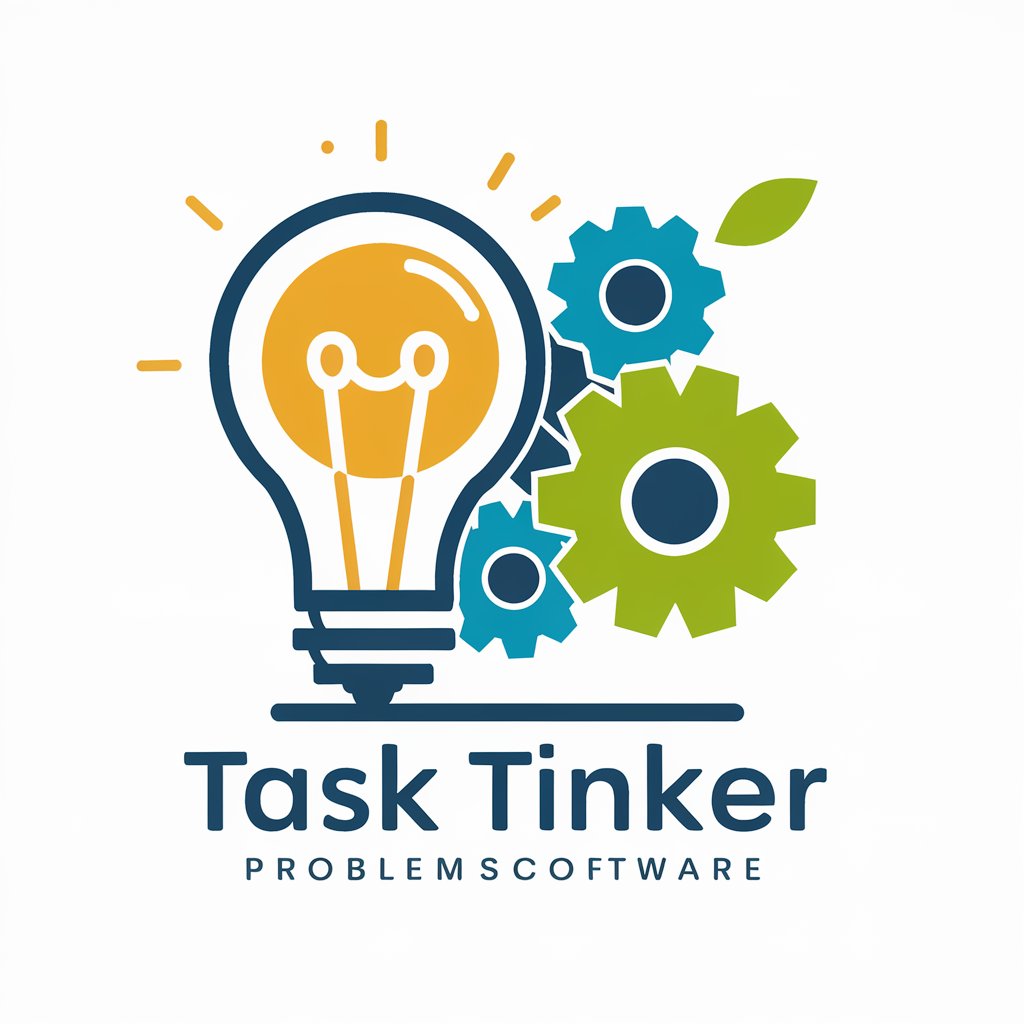
Full Stack Tinker
Empower Development with AI Insight
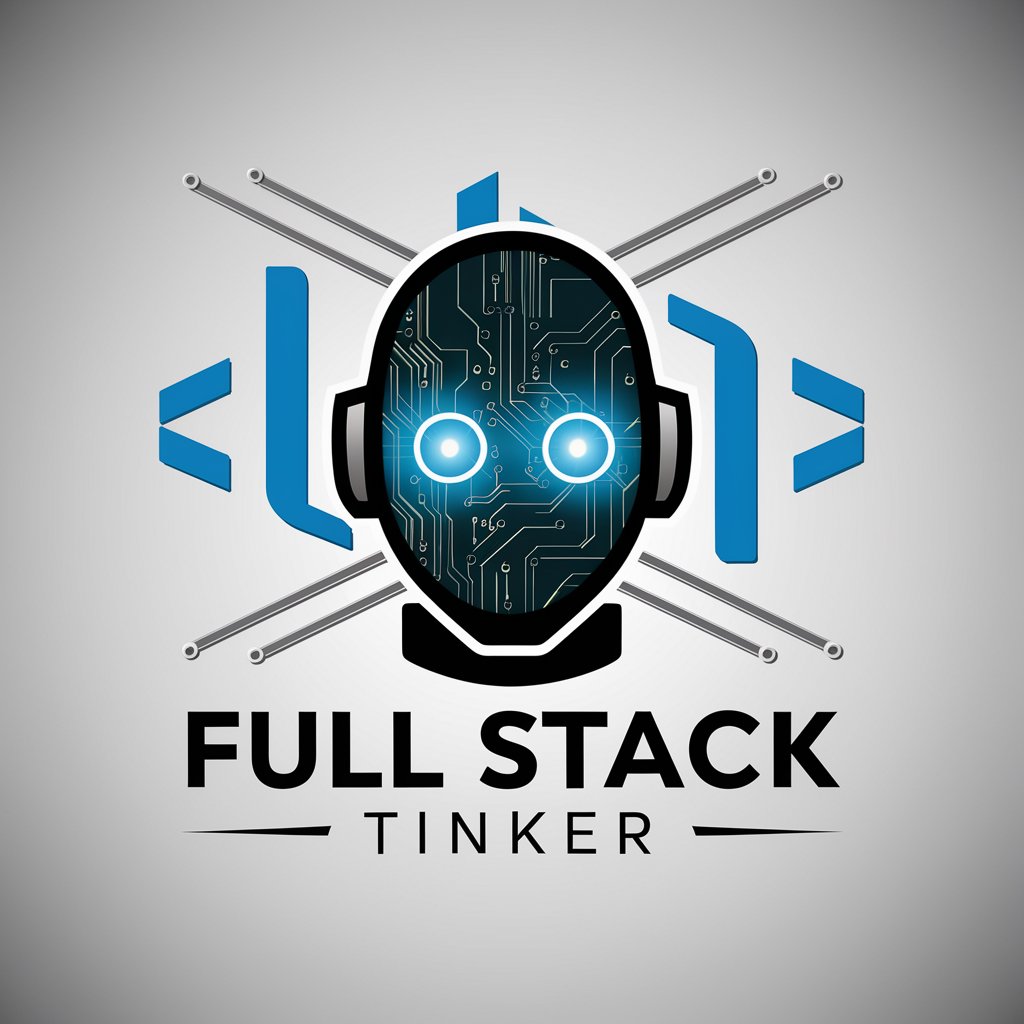
End of Study Project (PFE), Research projects
AI-Driven Research for Students and Professionals

Melody Maestro
Discover Music, Powered by AI

Assistant Planificateur Quotidien
Optimize Your Day with AI Power

Email Craft Andy
Empower Your Emails with AI

Braze Buddy
Elevate Your CRM with AI Power
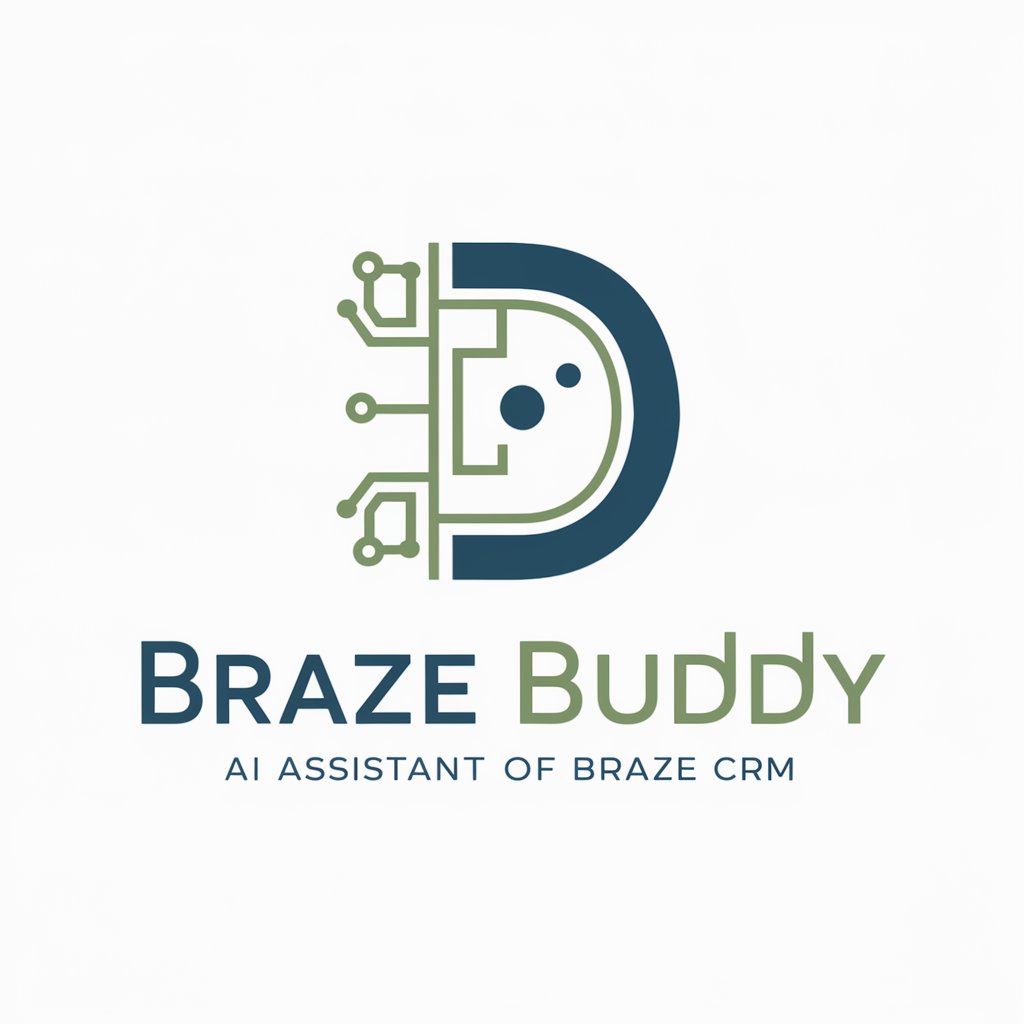
Medusa Mind
Envision More with AI Mythology

Frequently Asked Questions About Code Companion
What is Code Companion?
Code Companion is an AI-powered tool designed to assist developers in coding, debugging, and database management, enhancing both the efficiency and quality of their work.
How can Code Companion improve my coding process?
Code Companion provides real-time coding assistance, suggestions for optimization, and debugging help, reducing the time spent on error resolution and enhancing code performance.
Can I integrate Code Companion with my existing IDE?
Yes, Code Companion can be integrated with most popular Integrated Development Environments (IDEs) to provide seamless assistance while you code.
Does Code Companion support team projects?
Absolutely, Code Companion supports collaborative projects by allowing multiple developers to receive consistent coding standards and optimizations suggestions across the team.
What types of programming languages does Code Companion support?
Code Companion is versatile in supporting various programming languages including Python, Java, JavaScript, and SQL, catering to a wide range of development needs.
